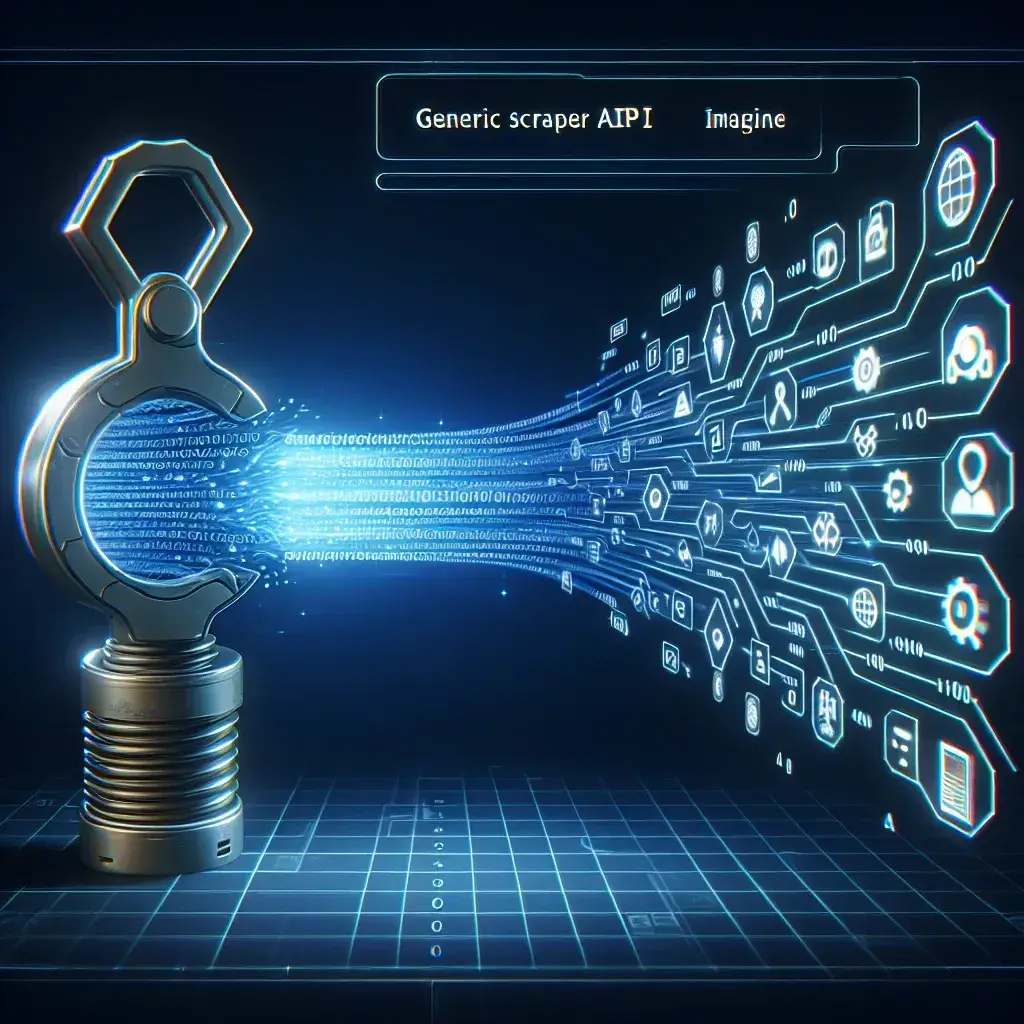In today’s data-driven digital landscape, businesses are constantly seeking efficient ways to extract valuable information from websites. Scraper APIs have emerged as game-changing tools that revolutionize how organizations collect, process, and utilize web data. These sophisticated programming interfaces provide automated solutions for gathering information from various online sources, eliminating the need for manual data collection processes.
Understanding Scraper APIs: The Foundation of Modern Data Extraction
A scraper API represents a specialized application programming interface designed to extract data from websites systematically. Unlike traditional web scraping methods that require extensive coding knowledge and constant maintenance, these APIs offer streamlined solutions that handle complex extraction tasks automatically. They serve as intermediaries between your applications and target websites, managing the intricate processes of data retrieval while ensuring compliance with website policies.
The fundamental principle behind scraper APIs involves sending HTTP requests to target websites and parsing the returned HTML content to extract specific data points. However, modern scraper APIs go far beyond basic HTML parsing, incorporating advanced features such as JavaScript rendering, CAPTCHA solving, and proxy rotation to overcome common scraping challenges.
Key Benefits of Implementing Scraper APIs
Scalability and Performance Optimization
One of the most significant advantages of scraper APIs lies in their ability to handle large-scale data extraction operations efficiently. Traditional scraping methods often struggle with volume limitations and performance bottlenecks, but well-designed APIs can process thousands of requests simultaneously while maintaining optimal response times.
Reduced Development Complexity
Implementing scraper APIs dramatically reduces the technical complexity associated with web scraping projects. Instead of building scraping infrastructure from scratch, developers can integrate pre-built API solutions that handle common challenges such as rate limiting, session management, and error handling automatically.
Enhanced Reliability and Maintenance
Professional scraper APIs typically include robust monitoring systems and automatic updates that ensure consistent performance even when target websites modify their structures. This reliability factor eliminates the constant maintenance burden that traditional scraping solutions often require.
Cost-Effectiveness and Resource Allocation
From a business perspective, scraper APIs offer compelling cost advantages compared to developing and maintaining in-house scraping solutions. Organizations can redirect their technical resources toward core business activities while leveraging specialized API providers’ expertise in data extraction.
Popular Use Cases and Industry Applications
E-commerce Price Monitoring
Retail businesses extensively utilize scraper APIs for competitive price monitoring, enabling them to track competitor pricing strategies in real-time. This application allows companies to implement dynamic pricing models and maintain competitive advantages in fast-moving markets.
Market Research and Business Intelligence
Market research firms leverage scraper APIs to gather comprehensive data about consumer sentiment, product reviews, and market trends from various online platforms. This information provides valuable insights for strategic decision-making and market positioning.
Lead Generation and Sales Prospecting
Sales teams employ scraper APIs to extract contact information and business details from professional networking sites, business directories, and industry-specific platforms. This automated approach significantly enhances lead generation efficiency and sales pipeline development.
Content Aggregation and Monitoring
Media companies and content creators use scraper APIs to monitor news sources, social media platforms, and industry publications for relevant content and trending topics. This capability enables them to stay informed about industry developments and create timely, relevant content.
Technical Implementation Strategies
API Integration Best Practices
Successful scraper API implementation requires careful planning and adherence to best practices. Developers should prioritize proper error handling, implement appropriate rate limiting mechanisms, and design robust data validation processes to ensure data quality and system stability.
Data Processing and Storage Considerations
Effective scraper API implementations include comprehensive data processing pipelines that clean, validate, and structure extracted information before storage. Consider implementing data deduplication mechanisms and establishing clear data retention policies to optimize storage efficiency.
When working with data extraction tools, many developers find value in using an api downloader to streamline their workflow and ensure reliable data retrieval processes.
Security and Compliance Framework
Modern scraper API implementations must prioritize security and legal compliance. This includes implementing proper authentication mechanisms, encrypting sensitive data transmissions, and ensuring adherence to relevant data protection regulations such as GDPR and CCPA.
Choosing the Right Scraper API Solution
Evaluation Criteria and Feature Assessment
Selecting an appropriate scraper API requires careful evaluation of multiple factors including supported websites, extraction capabilities, pricing models, and technical support quality. Organizations should assess their specific requirements and compare available solutions based on performance metrics and feature sets.
Performance Metrics and Reliability Indicators
Key performance indicators for scraper APIs include response times, success rates, data accuracy levels, and uptime statistics. Reliable providers typically offer transparent reporting on these metrics and provide service level agreements that guarantee minimum performance standards.
Integration Complexity and Documentation Quality
The quality of API documentation and available integration resources significantly impacts implementation success. Look for providers that offer comprehensive documentation, code examples, and responsive technical support to facilitate smooth integration processes.
Future Trends and Technological Developments
Artificial Intelligence Integration
The future of scraper APIs lies in enhanced artificial intelligence capabilities that can automatically adapt to website changes, improve data extraction accuracy, and provide intelligent content analysis. Machine learning algorithms will enable APIs to learn from extraction patterns and optimize performance continuously.
Enhanced Anti-Detection Capabilities
As websites implement more sophisticated anti-scraping measures, scraper APIs are evolving to include advanced stealth technologies, behavioral mimicking, and distributed extraction networks that reduce detection risks while maintaining extraction efficiency.
Regulatory Compliance Evolution
Future scraper API developments will likely include enhanced compliance features that automatically adapt to changing data protection regulations and website terms of service, ensuring legal compliance across different jurisdictions and industries.
Conclusion: Maximizing Business Value Through Strategic Implementation
Scraper APIs represent powerful tools that can transform how businesses collect and utilize web data. By understanding their capabilities, implementing best practices, and selecting appropriate solutions, organizations can unlock significant competitive advantages while minimizing technical complexity and operational costs. The key to success lies in strategic planning, careful provider selection, and ongoing optimization of extraction processes to meet evolving business requirements.
As the digital landscape continues to evolve, scraper APIs will play increasingly important roles in enabling data-driven decision making and competitive intelligence gathering. Organizations that invest in robust scraper API implementations today will be well-positioned to capitalize on future opportunities in the data economy.







Leave a Reply